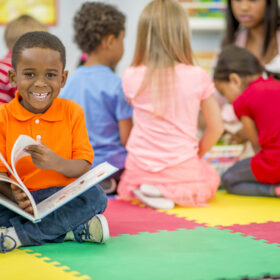Literacy Skills and the Pandemic

Literacy skills are one of the most important skills that we have in life. That’s why reading and writing are the first subjects that young students learn. Developing strong these skills early in life sets students up for success in school and life!
Covid-19’s Impact
Covid-19 has had a negative impact on literacy development, especially for young students. One study found that students in Grades 1 to 3 who struggled with reading before the pandemic were six months further behind after extended school closures.
But struggles with reading and writing skills is not only a pandemic issue. According to the Organisation for Economic Co-operation and Development (OECD), 13.8% of Canadian Grade 10 students do not have the baseline level of reading skills needed to navigate our society. Low literacy levels affect adults as well as students. Stats Canada shows that one in six adult Canadians fell short of passing the most basic set of literacy tests.
More than Reading and Writing
Literacy is about so much more than simply reading and writing! By enriching a young learner’s life and allowing them positive future opportunities, literacy skills can open doors to understanding, empathy, critical thinking, and lifelong learning.
Having strong literacy skills is linked to:
- Social Impact: literacy leads to stronger social skills, community involvement, and emotional well-being
- Economic Impact: high literacy levels lead to better employment and higher income
- Health Impacts: improved ability to manage health and wellness
While the foundation for strong literacy skills are laid while students are young, these skills need to be practiced and developed throughout life. As society becomes more digital, digital literacy becomes an important factor for participating in society. Being digitally literate means being able to adapt to the changes brought about by computers in ways that make sense to your life.
Building Strong Literacy Skills
Building strong reading and writing skills starts at a young age when children’s brains are most receptive to acquiring knowledge. Regular reading with children increases children’s enjoyment of books and reading. Increased exposure to books and vocabulary leads to a significant increase in school preparedness.
Establishing and maintaining literacy skills throughout life is a key way to ensure that these skills remain healthy and vital. Check out 5 Literacy Activities to help young learners become strong readers with reliable literacy skills for life!




